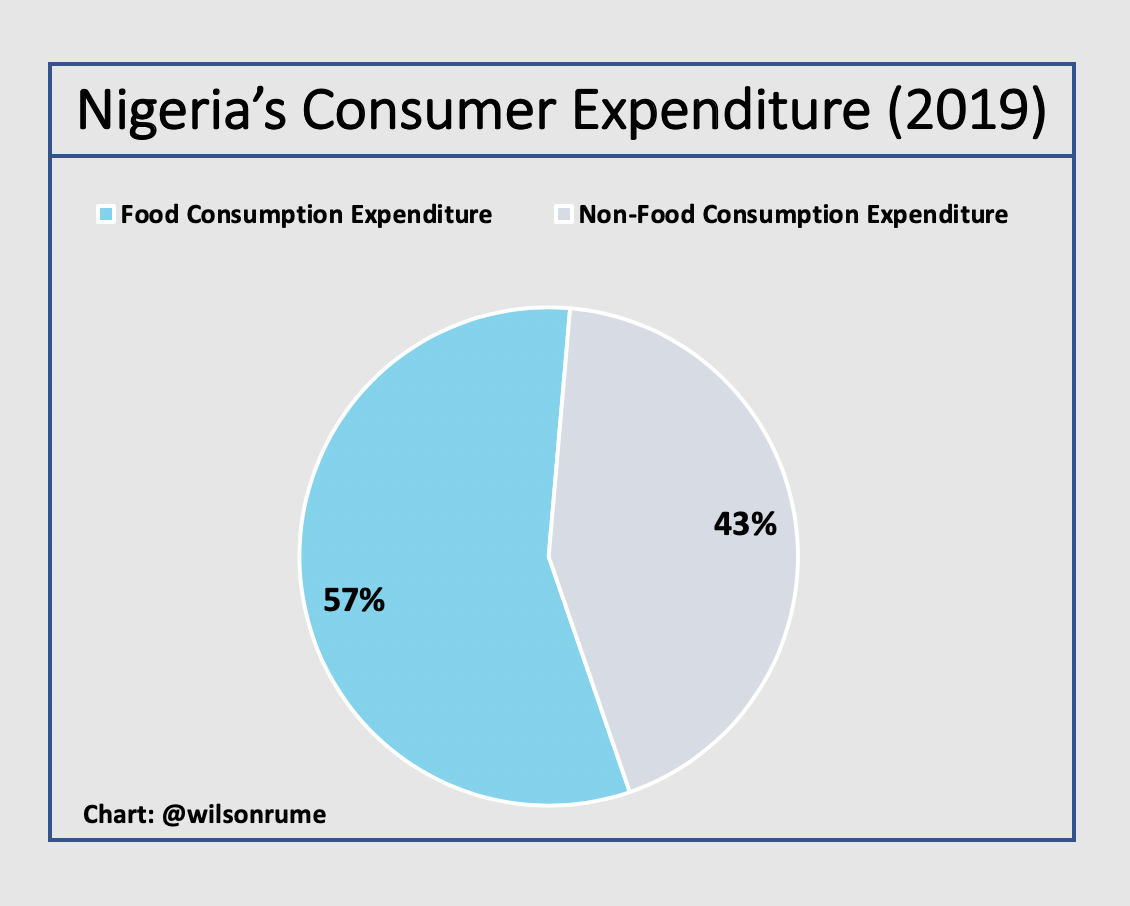
Understanding Nigeria’s N40 trillion Consumption Expenditure
In May 2020, the National Bureau Statistics (NBS) released 2019 Consumption Expenditure Pattern in Nigeria. According to the NBS, the purpose of this report is to portray household consumption expenditure types by food and nonfood items at the national, zonal level, and state level, and also the urban/rural split.
Total consumption expenditure for 2019 in Nigeria was N40.2 trillion. While expenditure on food accounted for 57%, non-food expenditure had a share of 43%. This brief provides insights and analysis on this consumption data with focus on national and regional patterns. Expenditure at state level will be captured in subsequent briefs.
Below are some findings from the NBS survey on Nigeria’s Consumption Expenditure Pattern:
In 2019, Nigeria spent N23 trillion (Naira) on food alone!
Expenditure for food was N23 trillion in 2019. From this figure, Food Consumed Outside of Home accounted for 20% and totalled N4.6 trillion. This category consists of breakfast, lunch, dinner, alcoholic and non-alcoholic drinks, etc. that are consumed outside the home. Rice, which is a staple food, accounted for 8.7% (N2 trillion) of total food expenditure in the year.
The chart below shows a breakdown of the type of food Nigerians purchased and how much was spent on each type. From a business perspective, this reveals the opportunities in the agricultural and food processing industry in Nigeria.
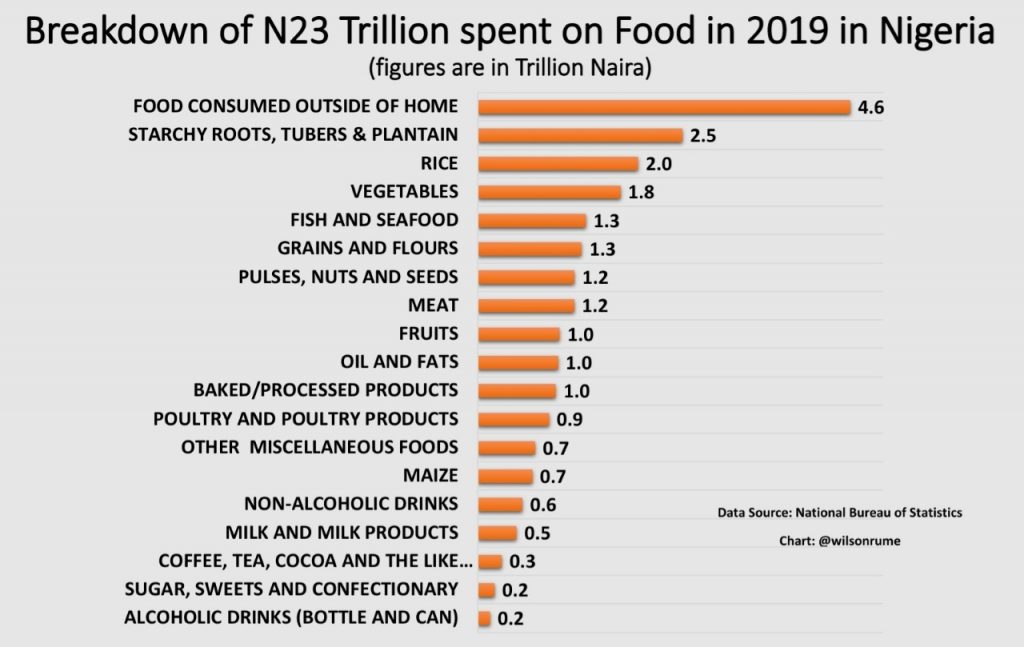
On Non-Food items, Nigeria spent N17.4 Trillion in 2019
Expenditure on Non-Food Items was N17.4 million in 2019. In this category, Nigerians spent the most on Transport – N2.6 trillion (14.9%), followed by Health – N2.5 trillion (14.1%) and Education – N2.4 trillion (13.9%). N2.1 trillion (12.2%) was spent on Rent and N428 billion (2.5%) on Entertainment.
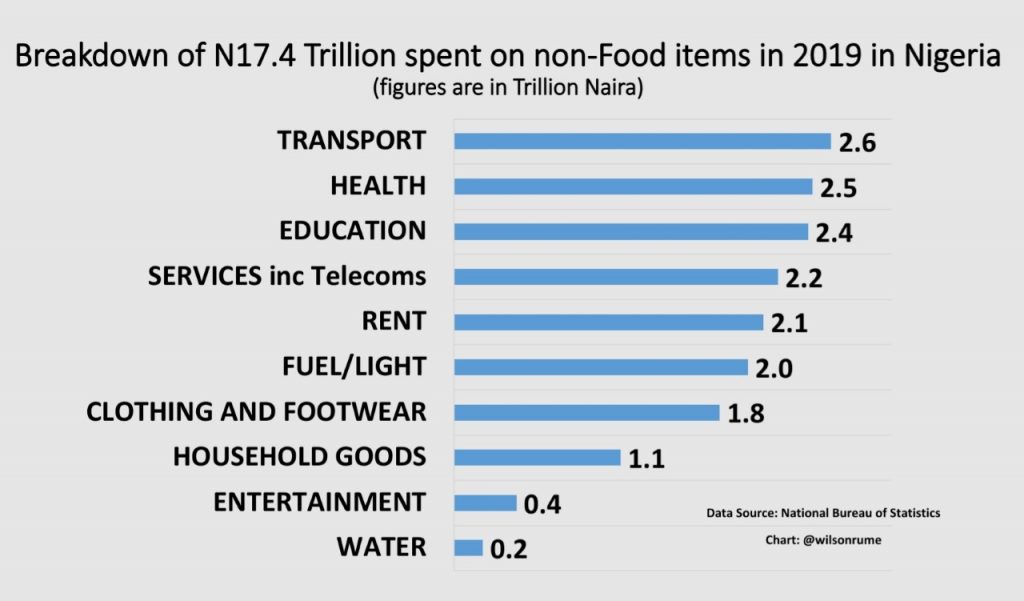
Expenditure by Region shows the South West, led by Lagos State, spent the most on food and non-food items
The South West spent the most on Food in 2019 at N6.2 trillion, which is 27% of total. Lagos accounted for 39% of total food expenditure in the region. This is not surprising given cosmopolitan nature of the state, among other factors. This was followed by the South South (N4.6 trillion) and North West (N4.3 trillion). The North East spent the least. The same trend was witnessed for non-food expenditure.
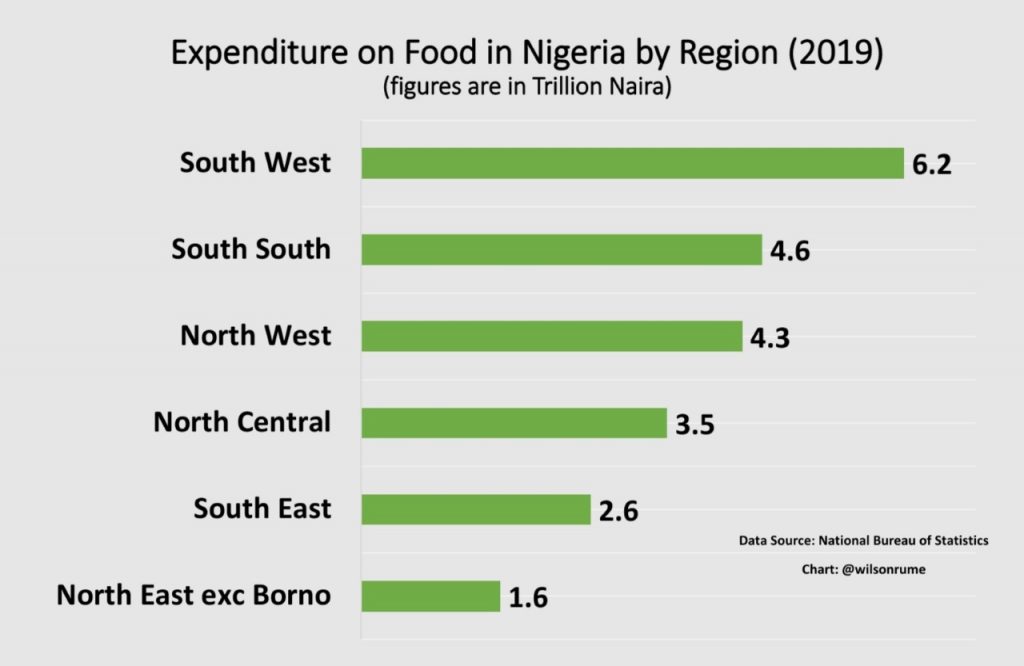
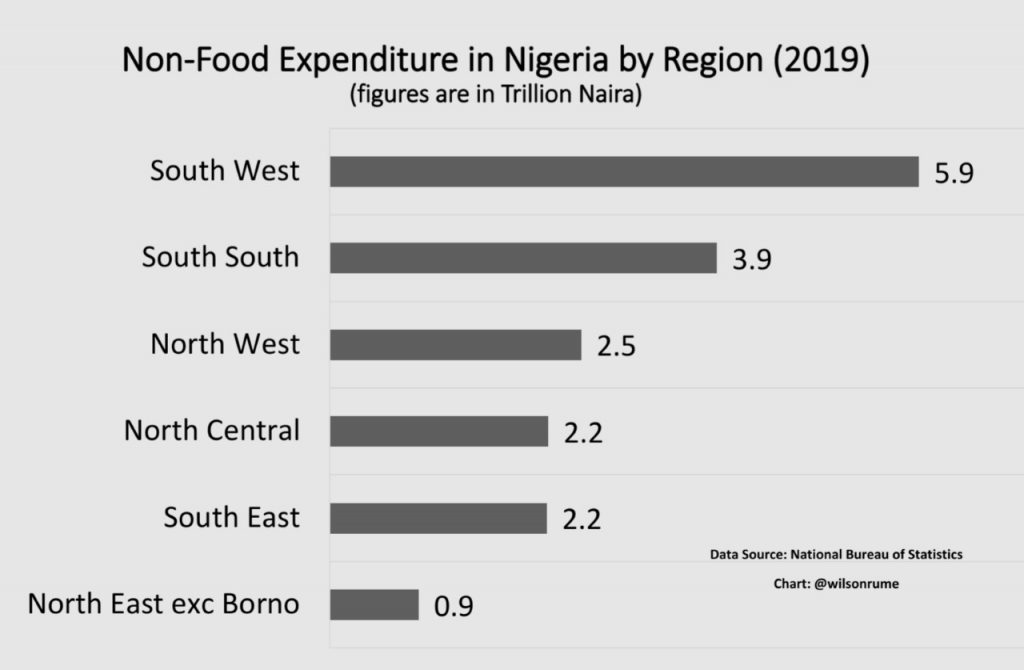
Non-Food Expenditure by Region – Health
The South West is the region that spent the most on Health (N530bn) while the North East spent the least (N196bn). Among all the non-food expenditure items (Transport, Health, Education, Services, Rent, Fuel/Light, Clothing and Footwear, Household Goods, Entertainment and Water), Health was the number one non-food expenditure item in the North East, North Central, North West and South East. It was number 7 in the South West (after clothing and footwear) and 4th in the South South after Transport, Education and Services.
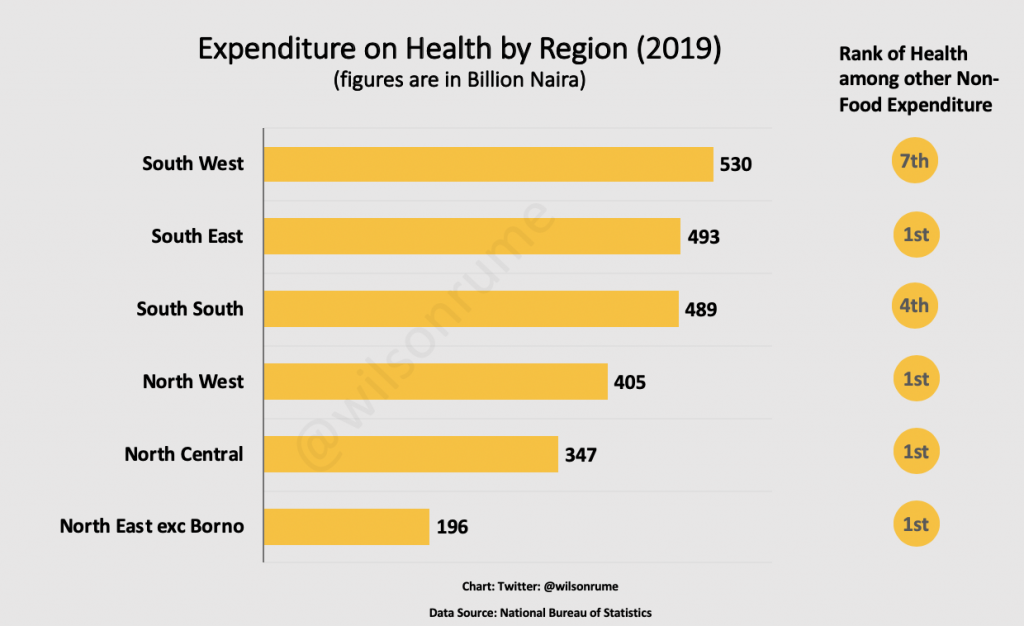
Non-Food Expenditure – Education
South West spent the highest – N869 billion on education in 2019. This was followed by South South (N549 bn), South East (N338 bn) and North Central (N332bn). Education was the 2nd biggest non-food expenditure item in the SW (after Transport), SS (after Transport), SE (after Health) & NC (after Health). It was 7th in NW & NE.
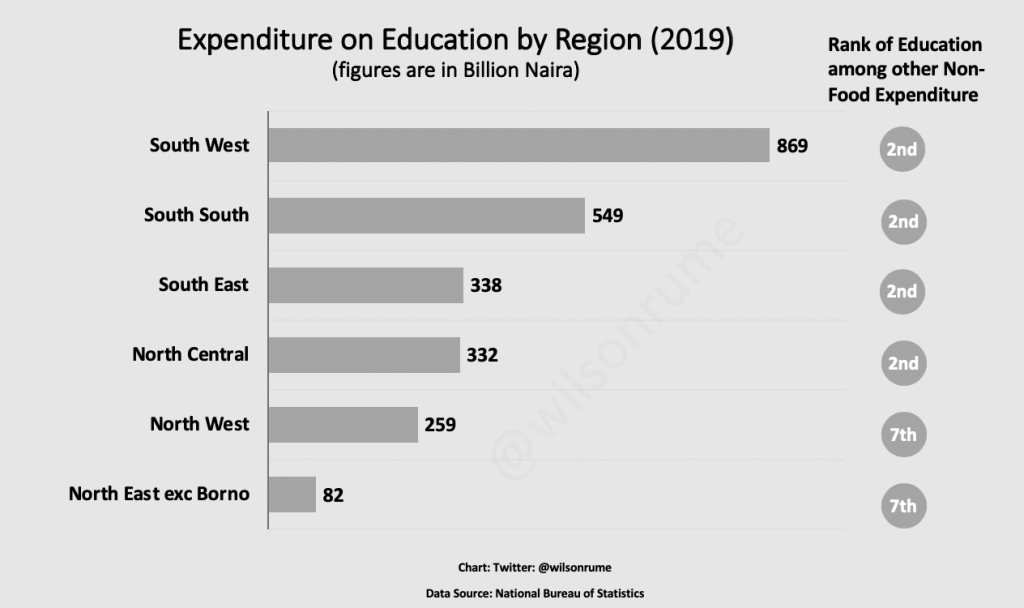
Non-Food Expenditure – Transport
N1.1 trillion was spent on Transport in the South West, while the South East spent N605 billion. The North West was 3rd with N292 billion. Transport was 1st among non-food expenditure items in the South West and South South. It was 5th in North West and North Central and 4th in South East and North East.
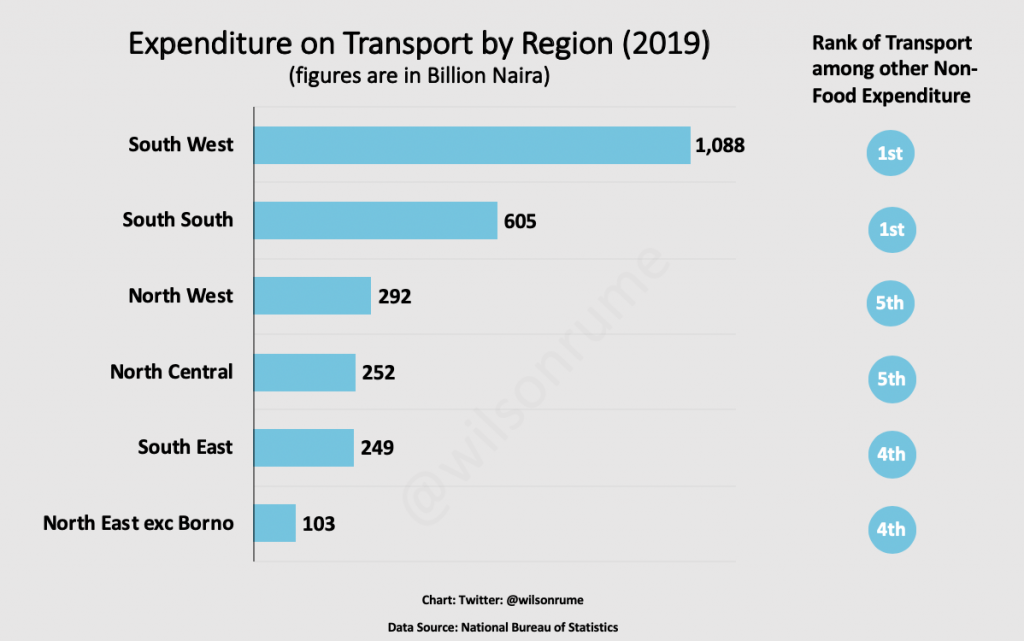
Non-Food Expenditure – Entertainment & Rent
Entertainment: South West tops the list followed by South South, South East and North West.
Rent: South West spent the most on rent across all regions. However, rent was number 5 non-food expenditure item in the SW (after Fuel/Light). Expenditure on rent was higher than education in the NW and NE.
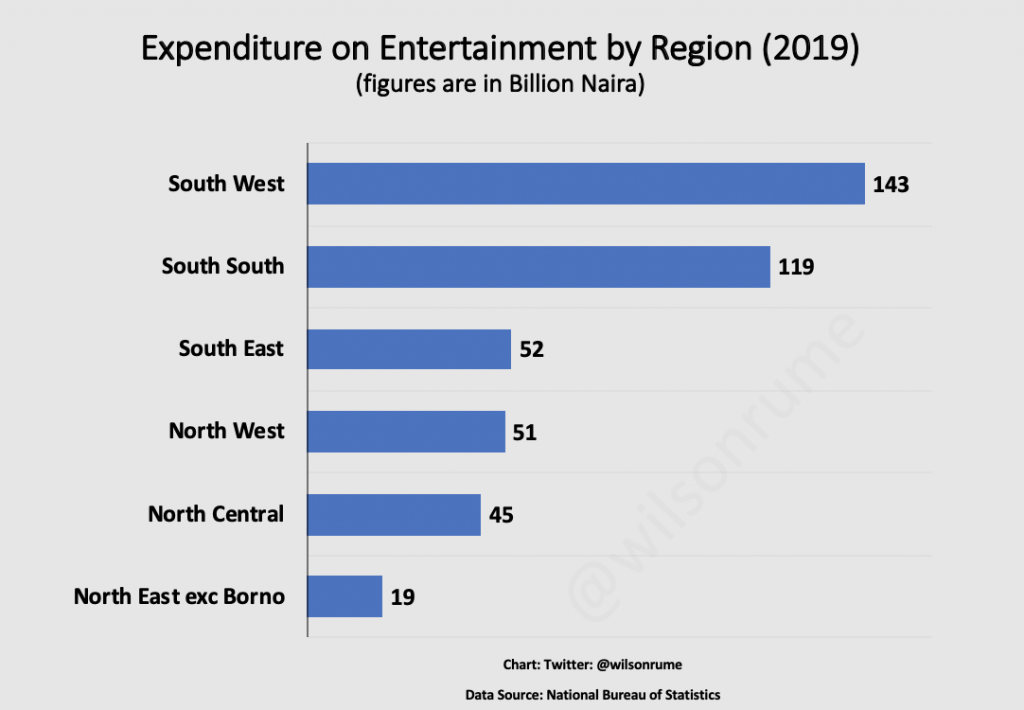
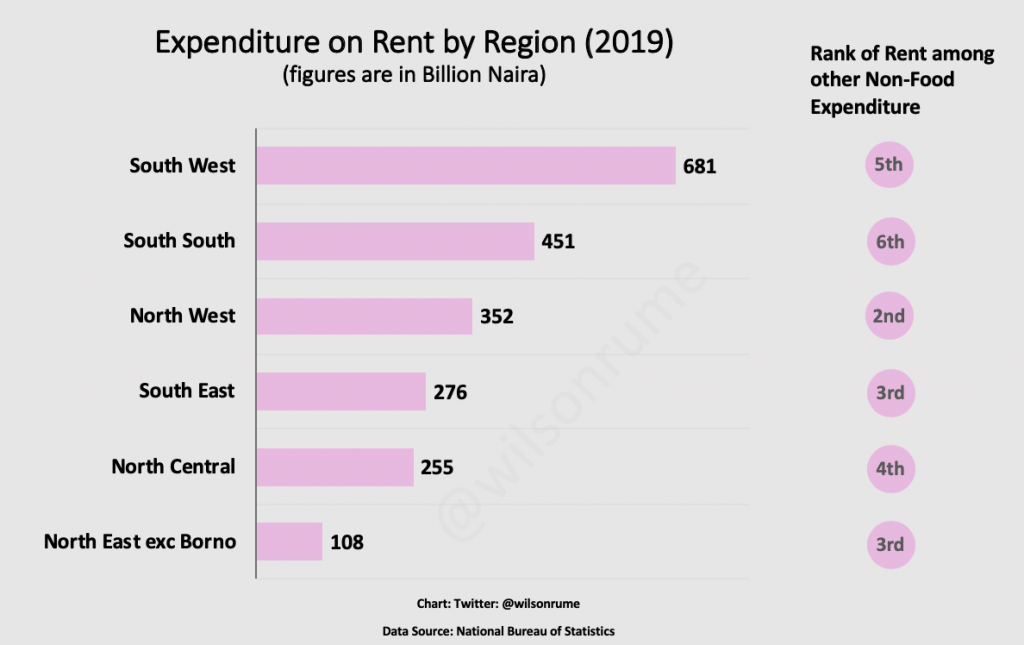
Key Takeaways
1. Opportunities exist: Despite the tough business terrain, there are opportunities in Nigeria for individuals/businesses.
2. There is power in numbers. Nigeria’s huge population of over 200 million may not host a significant number of wealthy people relative to the poor, the fact remains that even the poor spend money on food, transport, clothing EVERYDAY!
3. For public policy, government’s role is key: For businesses and individuals to maximise the opportunities that exist across key sectors especially during and post COVID-19, the government must play its part in ensuring a favourable business environment and in providing support and incentives to businesses. Specific hurdles such as poor infrastructure, regulatory bottlenecks, poor power supply, unwarranted charges from government and non-state actors etc. across sectors must be tackled to allow significant inflow of both domestic and foreign investments.
4. Policies must target income growth for citizens: As countries make progress and become more developed, the share of spending on food in total spending automatically reduces. Currently, the data shows that food expenditure accounted for 57% of total expenditure in Nigeria, which is relatively high and suggests that majority of citizens are at the survival stage with low income. Government policies therefore must focus on increasing income and ensuring appropriate distribution of wealth for citizens. Developing a national or regional skills development programme in collaboration with the private sector; establishing a favourable business environment for job creation; implementing income transfers to poor and affected households (in the light of COVID-19) among other measures, are crucial.
5. Investment in education is important: The data shows clearly that regions that spend more on education are more advanced than those that spend less. The recent poverty data released by the NBS also confirms this- Poverty rate for households with no education was 50% while that of households with post secondary education was 8%.
6. Weird relationship between education and health? From the data, regions where education was not a top priority like the NW and NE spent more on health care. This suggests, perhaps, that not spending a significant resources on education is associated with poor healthy choices and results in illness and therefore higher spending on health. This point, however, requires further investigation to draw up a credible conclusion.
This article was written by Wilson Erumebor. Data Source: National Bureau of Statistics
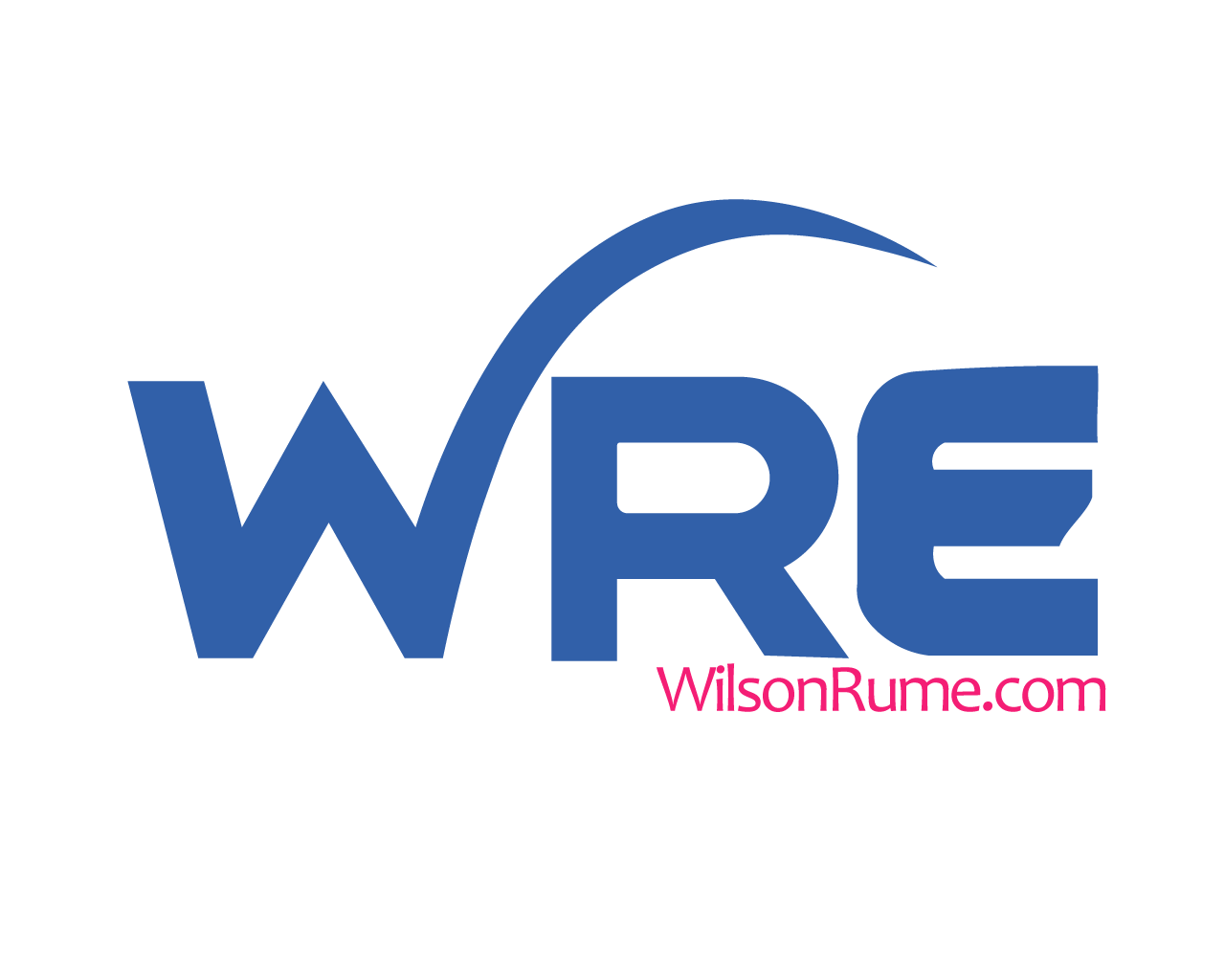
Olusegun
I love your explanation on the role of government. Thanks, Wilson.
Wilson Rume
Thank you for the comment
Barbara Barungi
Excellent anrticle and shows that granular analysis will be more useful for evidence based policy making si as to have high impact development results
Wilson Rume
Exactly. Your comment is appreciated.